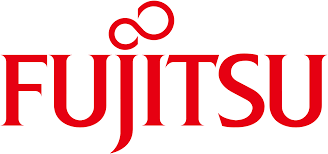Fujitsu is known for its support for telecommunications carriers working to reduce their carbon footprint, and ultimately contribute to a more sustainable society. The OEM made a commitment to sustainability early this year when it launched a 5G virtual radio access network (vRAN), which halves overall system CO2 emissions.
This week, the Japanese multinational, listed sustainability as its first priority, according to Fujitsu Technology and Service Vision 2022, a report it published.
Fujitsu is not alone. The importance of sustainability has risen to high or very high among 60 percent of organizations around the world, according to a survey commissioned by Fujitsu and conducted by Forrester Consulting in February 2022. Additionally, sustainability is a top three management priority in 41 percent of the survey respondents.
“The mindset of business leaders around the world is changing rapidly,” the report reads. “Achieving sustainability for the economy, society, and the environment now represents a key management priority, and leaders increasingly have to consider the impact of their business decisions and activities on the global environment.”
Fujitsu plans to drive sustainability transformation through digital innovation over the next ten years. “Sustainability transformation” means bringing about positive change in the environment, society, and economies, according to the report.
Fujitsu’s new vRAN technology supports 5G SA and conforms to open radio access network (O-RAN) specifications, while using to maximum advantage proprietary technologies to successfully solve some of the challenges surrounding conventional vRANs. In April, Inside Towers reported Fujitsu’s collaboration with Meta Connectivity to accelerate the adoption of O-RAN technologies, contributing 5G massive MIMO Radio Units. In June 2020, DISH committed to using Fujitsu’s low-band, tri-Band radio unit and the mid-band dual-band radio unit, both industry firsts for O-RAN radios, across the company’s spectrum portfolio, Inside Towers reported.
In March, Fujitsu began providing vRAN software that runs on general-purpose servers for carrier verification, including field testing. By the end of fiscal 2022, Fujitsu plans to start offering vRAN technology-as-a-service on a global basis, with the aim of expanding it to the commercial service networks of each carrier. Its goal is to reduce total CO2 emissions by 50 percent or more by 2025, compared to conventional base station systems, by successively updating software functions and further improving technologies to reduce environmental impact.
By J. Sharpe Smith, Inside Towers Technology Editor





Reader Interactions